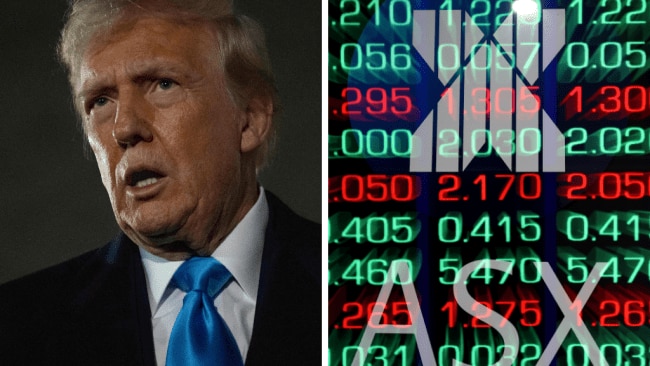Crooks win in Wall St revolt: Bronte Capital
Hedge funds likely to ‘stay quiet’ on their short positions in the future.

The retail investor revolt against Wall Street is a win for fraudsters who will now benefit from hedge funds staying quiet on their short positions, according to Bronte Capital founder John Hempton.
Speaking to The Australian about the short squeeze attack on a handful of stocks in the US, including GameStop and AMC Entertainment, Mr Hempton said the past month had been “the worst in history for the long/short community and particularly bad for the short community”.
“What’s happening is really tough and it’s a threat to the existence of many short funds. It certainly makes me reconsider ever wanting to be public on a short. There’s no reason to be targeted,” he said.
“The criticisms I once made about Valeant, I would not make them in this environment.”
Mr Hempton is well known for his role in exposing widespread fraud at Valeant Pharmaceuticals. He made millions of dollars by shorting the stock between 2014 and 2017, before its price collapsed.
As the battle between Wall Street and Main Street rages on, local hedge funds are contemplating the long-term impact on short-selling and warning of heavy losses to come for day traders invested in the latest hot stocks.
For Munro Partners’ chief investment officer Nick Griffin, the revolt “makes it harder to short-sell now”. Mr Griffin told The Australian: “You used to short on fundamentals. You would say, ‘well, this company’s got a bad business model; it’s poorly run, and we think they’re probably going to have a profit warning and we went to short the stock to profit from that’.
“Now we’re going to be less inclined to do that, because the stocks could go up dramatically for non-fundamental reasons.”
Mr Griffin’s Munro Partners typically has between five and 10 short positions at any given time, but that number has shrunk to two in the past year as the economic recovery has gathered pace. The fund had reduced short-selling for a while, Mr Griffin said.
The long-term consequence of hedge funds shying away from shorting meant that stocks would become more volatile because there would not be anyone prepared to take the other side any more, he warned.
“Generally, when a company gets overbought, someone will try and short-sell it,” Mr Griffin said.
“Conversely, if a company gets oversold, the short sellers will buy it by covering their shorts.
“That won’t happen any more. You’ll just have these stocks that go up a lot and then go down a lot. You won’t be able to marry up buyers and sellers as easily because short sellers will be less prevalent in the market.”
For Platinum Asset Management chief investment officer Andrew Clifford, the so-called “Reddit rebellion” is “a perfect lesson” in investing and markets: “You don’t want to be where the crowd is,” he said.
“Don’t be in a crowded short: that’s the lesson. Don’t be in something so obvious.
“I know a lot of people play the obvious, but when it goes wrong it goes awfully wrong. Avoid crowded trades.
“This one is quite extraordinary but the lesson is the same.”
Labelling Reddit forum Wallstreetbets “a crowd full of sharks”, Mr Hempton said the instigators of the crowded trade had made life much easier for crooks to cheat investors out of money.
“This is the biggest gift to fraudsters of my lifetime,” Mr Hempton said.
“We had foreigners come into this market and tell us that Blue Sky and Quintis were frauds. And they were right. They won’t do it any more.
“Whether that’s a good thing or a bad thing, I don’t know. But it’s a great thing for fraudsters.”
Both Blue Sky Alternative Investments and Quintis went into administration.
Staying quiet on shorts, having a lot of short positions, and being “incredibly skittish” would be enough to protect Bronte Capital through the current disruption, he said, as he revealed the impact of the short squeeze attack on the industry.
“This has scared the f. k out of everybody. It’s scared the f. k out of me because I’m short a whole lot of stocks that I have to cover because it’s a possibility for them,” Mr Hempton said. “I’ve now covered them, mostly.” Ultimately retail investors would be the biggest losers, Mr Hempton said.
“Net-net, retail investors will lose a lot of money and Wall Street will make a lot of money. And Wall Street won’t bother saying thank you,” he said.
Expecting losses on both sides, Mr Griffin said it would end up being a “bad experience” all around.
“That’s not what we want. We want people to have an interest in markets, we encourage retail investing,” Mr Griffin said.
Pushing the price up to get a point across makes sense with something like bitcoin, but not with struggling companies, he said.
“If you’re doing it with a company that’s bankrupt, the company is just going to go and raise capital. So they’re going to just sell you more shares,” he said.
“I understand the sentiment behind [the squeeze], but management teams will just take advantage of the speculation, unfortunately these businesses will eventually trade on fundamentals and investors are going to lose a lot of money.”
Mr Clifford is also in no doubt that the rush on the hot stocks will come to an ugly end.
“Gravity applies in the stockmarket eventually and the underlying ability of the entity to earn revenue to support where it is, is pretty much non-existent,” he said of GameStop, whose share prices rocketed from $US18 at the start of January to a high of $US347 last week. The stock tumbled 31 per cent on Monday to finish the session at $US225.







